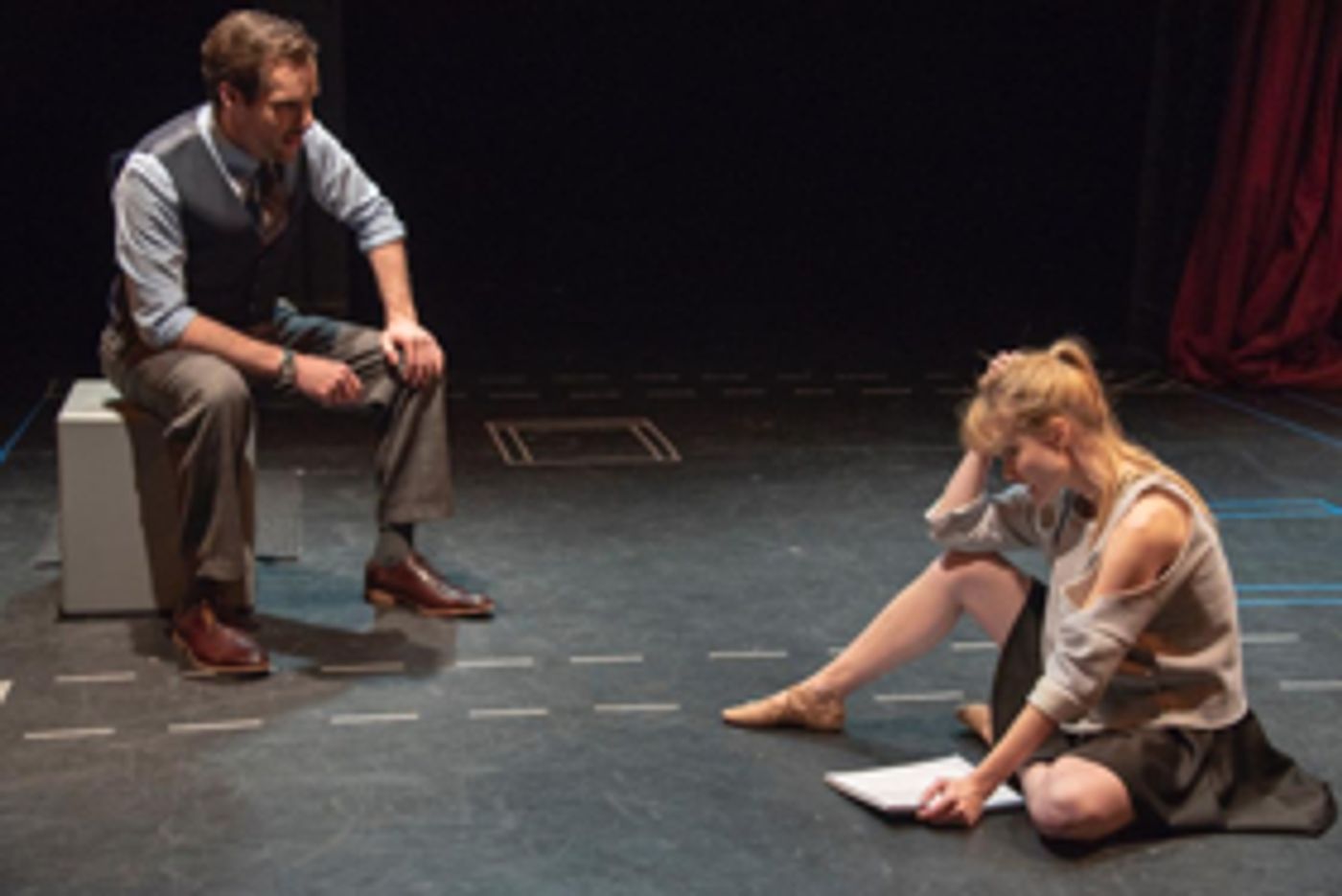Review: World Premiere BARE STAGE: A Play for the Zeitgeist

bare stage
Written by Michael Walker, Directed by A. Nora Long, Choreographed by Ilyse Robbins, Stage Managed by Angela Harrington; Scenic Design, Shelley Barish; Lighting Design, Abigail Wang; Costume Design, Tobi Rinaldi; Sound Design, Jacob Montgomery; Props Design, Michael Cowie; Assistant Stage Manager, Carmen Catherine Alfaro; Dramaturg, Marie Andrews; Dialect Coach, Bryn Austin
CAST: Kevin Cirone, Ashley Risteen, Allie Meeks-Carufel, Steve Auger, Glen Moore, Carmen Catherine Alfaro
Performances through March 2 presented by Festival Theatre Company in association with Paul Gregory and Alex Kenton at the Plaza Theater at the Boston Center for the Arts, 539 Tremont Street, Boston, MA; Tickets at: www.bostontheatrescene.com/season/bare-stage
The world premiere of Boston playwright Michael Walker's bare stage lands smack in the middle of the zeitgeist, surrounded by the swirling maelstrom of #MeToo and a building movement within the theater arts community to pay attention to the needs of actors when they are at their most vulnerable. With the latter perhaps a reaction to the former, intimacy coaches are becoming no more a novelty than fight directors, acknowledging that stage love can be as treacherous as stage war. In bare stage, Walker wades deeply into an exploration of nudity on stage, seeking to answer the question of when it is essential to the play, and when it crosses the boundary to objectification or exploitation. The bottom line is to find the balance between the point/counterpoint of censorship vs. artistic freedom.
Walker raises a number of related issues, including the imbalance of power between the director and the actors, the disparity between the way equity and non-equity performers are treated, and the financial and personal pressures that weigh on an actor's choice of whether or not to accept a role. As each of these problems is added to the mix, the dramatic tension increases and the members of the audience are challenged to consider anew which side of the argument resonates with them. The most distinctive element of Walker's script is his ability to articulate both perspectives with equal passion and credibility.
Fortunately, Director A. Nora Long "gets" this dichotomy in her bones and tells Walker's story honestly and fairly. As if it were not already evident by their capacity as director and actor, Long's blocking emphasizes the gulf that exists between Parker Martin (Kevin Cirone) and Mary Katherine "Kate" Byrnes (Ashley Risteen) when they are in rehearsal or conversation. On a few occasions when the divide is narrowed by one or the other, it cues something especially dramatic that is about to happen or to be aborted, and both actors reflect that change in their body language.
The ensemble features strong performances across the board, with Steve Auger as Kate's "Da" Patrick, evoking sympathy for his between-a-rock-and-a-hard-place circumstances. He wants to support his daughter's career and her choices, but is clearly uncomfortable about her appearing nude for the coveted role in Martin's new play. Kate's boyfriend Tim is more concerned with his own career moves than hers and, although he only has a couple of scenes, Glen Moore projects his self-centered narcissism almost instantly and draws our disdain (as well as Kate's). Allie Meeks-Carufel is almost instantly likable as Kate's friend and fellow actor, Rachel Goldstein, who has a hard time dealing with the idea of baring her zaftig body, but desperately needs the work. She is genuine and sympathetic as she conveys some of the playwright's important points about body-shaming, being a non-equity actor, and fearing loss of opportunity.
Dressed in tweeds and sporting a proper British accent, Cirone manages to avoid becoming a stereotype by portraying his character as thoughtful, brooding, and intelligent. He gives the impression of Martin studying Kate, to understand how to motivate her to do his bidding, more for his benefit than hers. Risteen's responses to him illustrate how susceptible the actor is to the Svengali-like power of the director, until there is a shift in their relationship and she asserts her own power. As the only character who interacts with all of the others, Risteen has the opportunity to show a range of emotions and reactions, and she does not disappoint. In the one scene in which she appears au naturel, she does so unflinchingly, commanding our attention to the point that Kate is making, rather than to be distracted by her state of undress. No pun intended, but her performance, especially in that moment, is a revelation that showcases Risteen's artistic growth.
bare stage takes place on the bare stage of a theatre and uses a minimalistic scenic design by Shelley Barish. There are numerous strips of tape on the floor to represent stage marks or outlines of pieces of (imagined) furniture in Kate's apartment. Abigail Wang's lighting design effectively creates mood and place, and Jacob Montgomery's sound design amplifies the calling of stage directions from the booth. Costume designer Tobi Rinaldi helps distinguish the differences between Kate and Rachel by their styles of dress. Kudos to dialect coach Bryn Austin for the authenticity of Cirone's and Auger's (brogue) speech.
bare stage is certainly not the be all and end all for the topic, but Walker makes a cogent and responsible contribution to further the discussion. His inclusion of nudity in his play is essential to make the argument that it can be used without detracting from the excellence of the writing and acting, and to show that it can be a respectful expression of artistic freedom without exploiting or objectifying anyone.
Photo credit: Kippy Goldfarb/Carolle Photography (Kevin Cirone, Ashley Risteen)
Reader Reviews
Videos

